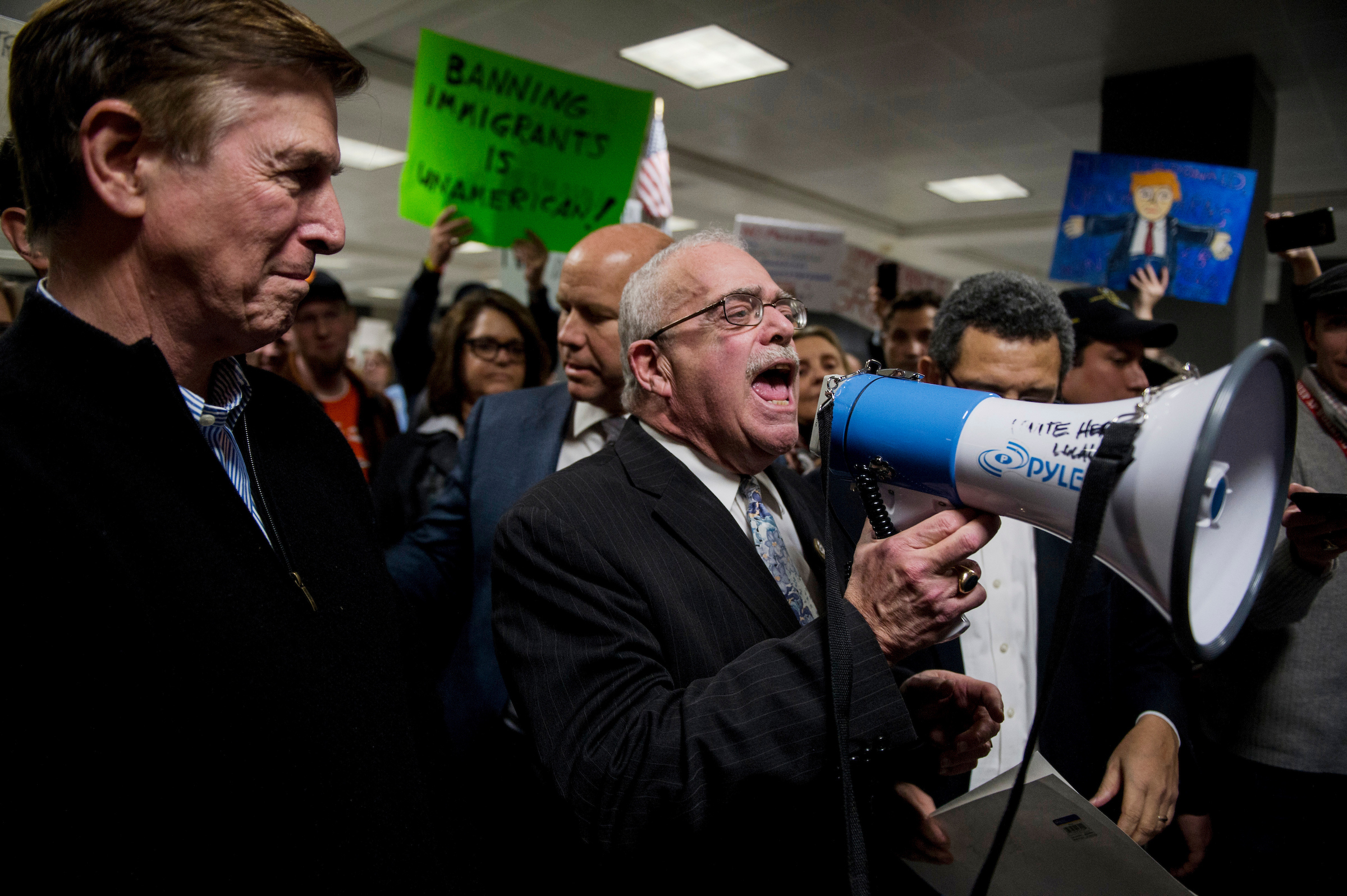Judge Narrows Trump’s Travel Ban Enforcement

The Trump administration can’t stop grandparents and other relatives of someone in the United States from entering the country under its enforcement of the revised travel ban, a federal judge in Hawaii ruled late Thursday.
The ruling is a legal setback for President Donald Trump’s temporary ban against travelers from six majority-Muslim countries, and could prompt the government to take the issue back to the Supreme Court during the justices’ summer recess.
The Supreme Court allowed the Trump administration to implement the ban for the first time in June. But challengers to the ban argued the government interpreted that ruling too narrowly, keeping out relatives with a “close familial relationship” to someone in the country that the justices meant to allow.
U.S. District Court Judge Derrick Watson agreed Thursday with the challengers, ruling that the ban can’t be enforced against grandparents, grandchildren, brothers-in-law, sisters-in-law, aunts, uncles, nephews and cousins of people in the United States.
Watson, in a 26-page ruling, stated that the government’s definition of “close familial relationship” contradicts the Supreme Court’s, is “unduly restrictive” and “represents the antithesis of common sense” because grandparents “are the epitome of close family members.”
“Had the Supreme Court intended to protect only immediate family members and parents-in-law, surely it could have said so,” Watson wrote. “It did not.”
When starting the revised travel ban in June, the State Department sent guidelines to U.S. embassies abroad that close family is defined as “a parent (including parent-in-law), spouse, child, adult son or daughter, son-in-law, daughter-in-law, sibling, whether whole or half. This includes step relationships.” The department later included fiancé on that list on its website.
Close family “does not include grandparents, grandchildren, aunts, uncles, nieces, nephews, cousins, brothers-in-laws and sisters-in-law, fiancés, and any other ‘extended’ family members,” the original State Department memo said.
Watson also ruled that the Trump administration can’t block refugees who are in the U.S. Refugee Admissions Program through the Lautenberg Program or have a formal assurance from a United States agency that it will provide reception and placement services. The Lautenberg Program, established via a 1990 spending bill, today helps facilitate the resettlement of Jews, Christians, Baha’is and other religious minorities fleeing Iran.
The Supreme Court in June let the Trump administration go ahead on most of the travel ban while it considered challenges to the legality of the president’s revised executive order. The justices are expected to hear oral arguments in October.
The court, however, said the government could not enforce the ban against foreign nationals from Iran, Libya, Somalia, Sudan, Syria and Yemen or refugees from around the world who have a “bona fide” claim of a “close familial relationship” with a person or relationship with an entity in the United States.





